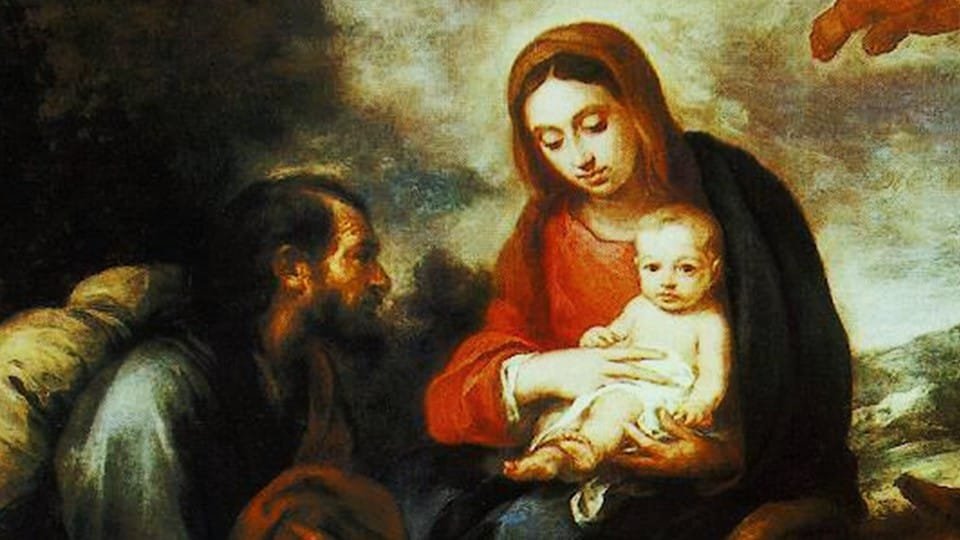DAILY GOSPEL COMMENTARY: “THE SON OF MAN HAS NOWHERE TO REST HIS HEAD” (Mt 8:18–22).
Gospel of Monday, 13th week in Ordinary Time
Mt 8:18–22
When Jesus saw a crowd around him, he gave orders to cross to the other shore. A scribe approached and said to him, “Teacher, I will follow you wherever you go.” Jesus answered him, “Foxes have dens and birds of the sky have nests, but the Son of Man has nowhere to rest his head.” Another of his disciples said to him, “Lord, let me go first and bury my father.” But Jesus answered him, “Follow me, and let the dead bury their dead.”
COMMENTARY FROM THE NAVARRE BIBLE, ST. MATTHEW (WITH PERMISSION)
Demands for following Christ
- 18-22 From the very outset of his messianic preaching, Jesus rarely stays in the same place; he is always on the move. He “has nowhere to lay his head” (Mt 8:20). Anyone who desires to be with him has to “follow him”. This phrase “following Jesus” has a very precise meaning: it means being his disciple (cf. Mt 19:28).
- Sometimes the crowds “follow him”; but Jesus’ true disciples are those who “follow him” in a permanent way, that is, who keep on following him; being a “disciple of Jesus” and “following him” amount to the same thing.
- After our Lord’s Ascension, “following him” means being a Christian (cf. Acts 8:26).
- By the simple and sublime fact of Baptism, every Christian is called, by a divine vocation, to be a full disciple of our Lord, with all that that involves.
- The evangelist here gives two specific cases of following Jesus.
- In the case of the scribe our Lord explains what faith requires of a person who realizes that he has been called;
- in the second case — that of the man who has already said “yes” to Jesus — he reminds him of what his commitment entails. The soldier who does not leave his position on the battlefront to bury his father, but instead leaves that to those in the rearguard, is doing his duty.
- If service to one’s country makes demands like that on a person, all the more reason for it to happen in the service of Jesus Christ and his Church.
- Following Christ, then, means we should make ourselves totally available to him; whatever sacrifice he asks of us we should make: the call to follow Christ means staying up with him, not falling behind; we either follow him or lose him.
- In the Sermon on the Mount (Mt 5-7) Jesus explained what following him involves — a teaching which we find summarized in even the most basic catechism of Christian doctrine: a Christian is a man who believes in Jesus Christ — a faith he receives at Baptism — and is duty bound to serve him. Through prayer and friendship with the Lord every Christian should try to discover the demands which this service involves as far as he personally is concerned.
- Sometimes the crowds “follow him”; but Jesus’ true disciples are those who “follow him” in a permanent way, that is, who keep on following him; being a “disciple of Jesus” and “following him” amount to the same thing.
- 20 “The Son of man”: this is one of the expressions used in the Old Testament to refer to the Messiah.
- It appears first in Dan 7:14 and was used in Jewish writings in the time of Jesus. Until our Lord began to preach it had not been understood in all its depth.
- The title “the Son of man” did not fit in very well with Jewish hopes of an earthly Messiah; this was why it was Jesus’ favourite way of indicating that he was the Messiah — thereby avoiding any tendency to encourage Jewish nationalism. In the prophecy of Daniel just mentioned this messianic title has a transcendental meaning; by using it Jesus was able discreetly to proclaim that he was the Messiah and yet avoid people interpreting his role in a political sense.
- After the Resurrection the Apostles at last realized that “Son of man” meant nothing less than “Son of God”.
- 22 “Leave the dead to bury their own dead”: although this sounds very harsh, it is a style of speaking which Jesus did sometimes use: here the “dead” clearly refers to those whose interest is limited to perishable things and who have no aspirations towards the things that last forever.
- “If Jesus forbade him,” St John Chrysostom comments, “it was not to have us neglect the honour due to our parents, but to make us realize that nothing is more important than the things of heaven and that we ought to cleave to these and not to put them off even for a little while, though our engagements be ever so indispensable and pressing” (Hom. on St Matthew, 27).
VIDEO REFLECTION
TOPIC: DO YOU ALWAYS MAKE EXCUSES AND PUT OFF SERVING GOD FOR ANOTHER TIME?
In today’s gospel reading, a Jewish scribe comes up to Jesus and tells Jesus, ““Teacher, I will follow you wherever you go.” Perhaps, this scribe became a fan of Jesus when he, like the multitudes that started to follow Jesus wherever He went, were amazed by Jesus’ miracles. Yesterday’s gospel reading saw a pagan, Jarius and his servant, and a woman, who had been bleeding for 12 years, being witnesses or recipients of Jesus’ healing power. We reflect today on our own habits and the heart we have in serving God.
Stay updated: subscribe by email for free TO OUR NEW WEBSITE www.catholicsstrivingforholiness.org (PUT YOUR EMAIL IN THE SUBSCRIBE WIDGET).
We are also in www.fb.com/Catholicsstrivingforholiness. Kindly help more people in their Christian life by liking our page and inviting your family, friends and relatives to do so as well. Thanks in advance and God bless you and your loved ones! Fr. Rolly Arjonillo
